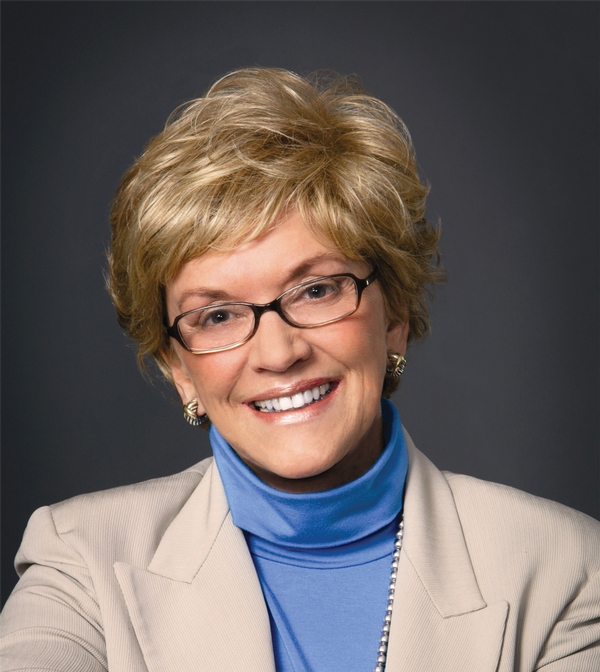
Empowering Stakeholders to Affect Change 25th Anniversary Essay by 2010 World Food Prize Laureate Jo Luck
The single most significant breakthrough in global food security during the past 25 years is the recognition of the critical value of empowering women, as well as men, to excel as individuals and groups to make choices that transform into action, and those actions to desired outcomes.
Closing my eyes, I think back on the last 25 years.
While visiting a Maasai community in eastern Africa, I queried the Chief about how much time he spent caring for the cattle—feeding, hauling water, milking, cleaning pens and assisting with birth of the offspring. He responded by saying that the women were responsible for those tasks.
I immediately suggested that, as such, it would be beneficial for these women to attend the agriculture training workshops we were providing. Quickly, I learned that their tribal culture did not permit women to attend, and I assured him of my respect for his leadership and local "rules." Casually, however, I mentioned the success I had witnessed in other villages where the women attended training meetings. I described the data that indicated milk production was greater and the offspring were healthier, among other improvements. And, now that we were talking economics and dollars and cents, the Chief reconsidered.
On another occasion, this time visiting agricultural projects in rural Zimbabwe, I asked to meet with the women of the community and soon found myself sitting on the ground in a circle with ten young women. Most of the women had been forced to marry at a very young age and were either pregnant or holding an infant. During our discussions I asked them about their dreams, hopes, and goals. With puzzled expressions they explained they didn't realize they could have dreams—no one had ever asked them such a question.
With eyes open, today I see progress.
In the Maasai community, where the Chief and I shared an in-depth discussion about the potential benefits of training animals’ care-givers in agricultural management, the women are now successful farmers working in partnership with their husbands. Many have become leaders in the community and educated a new generation of trainers in neighboring villages.
A young woman from the "dream circle" in Zimbabwe, who eighteen years earlier sat beside me and wrote her dreams on a scrap of paper, later became a co-worker at Heifer International and is a dear friend to this day. In spite of having three children by the time she was sixteen and caring for her abusive husband until he died, Dr. Tererai Trent achieved her goals when she earned her Bachelor’s, Master’s and Doctorate degrees in agriculture. Besides being highly regarded in her field, Dr. Trent was also named by Oprah Winfrey as her favorite and most inspirational guest from the entire 25-year run of her television show. Ms. Winfrey provided a $1.5 million grant for Dr. Trent to build a school in her home village that will allow the girls to receive an education along with the boys, thus fulfilling Dr. Trent’s final dream.
More than 80 percent of the small-resource farmers in sub-Sahara Africa and South Asia are women. They, along with their male counterparts, will play a key role in feeding the growing population of our planet in the next several decades.
Looking to the future, one where the sexes will continue to work together, we must encourage collaboration among other groups. We must shift our focus from what we can achieve individually as farmers, policy makers, companies, NGOs, governments, researchers and other institutions, and instead focus on what we can achieve together. How can we sustainably use our natural resources, financial, human and intellectual capital to provide and properly feed for a population predicted to reach 9 billion people by 2050?
Transparent dialogue and firsthand learning experiences across a broad spectrum of perspectives is necessary. I applaud many groups currently providing a safe venue and objective facilitation for these critical discussions. The greater challenge, however, is how to reduce polarization of issues and expand understanding of and respect for differing approaches to and opinions on agricultural and food system issues
A recent comment by Neilson C. Conklin, President of Farm Foundation, NFP summed up very well what is needed: "Rather than confrontation, we need civil, nonpartisan deliberations on the opportunities and challenges before us. And we need to begin now."
Each and every one of us has an equally important role to play to ensure food security in the future-- IF YOU EAT YOU ARE A STAKEHOLDER! Without the united effort of all stakeholders, food security cannot be achieved.


